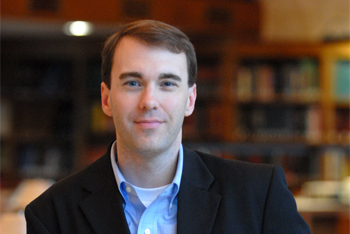Editor’s note: As the Christian landscape changes, leaders must ask and answer a new question: What’s the future of denominations? This video is part of an occasional series that offers the thoughts of people across American Christianity on this vital issue. To see the entire series, click here.
Ray of Hope Church, a Disciples of Christ congregation in Decatur, Ga., began in 1986 as a Bible study group in the Rev. Cynthia L. Hale’s living room. Today Ray of Hope is a 5,100-member church, and Hale is its founding and senior pastor.
Hale said the Disciples’ general and regional church structures are no longer in a position to provide the services they once provided. The life of the denomination can be found and supported at the local church level, she said.
Hale earned her master of divinity degree from Duke Divinity School and a doctorate of ministry from United Theological Seminary, Dayton, Ohio. She has received five honorary doctorates of divinity.
Hale has been inducted into the African American Biographies Hall of Fame and the Morehouse College Martin Luther King Jr. Board of Preachers. Hale was selected by then-Sen. Barack Obama to give the opening invocation at the 2008 Democratic National Convention.
She spoke to Faith & Leadership about the future of denominations, and, in particular, the (Christian Church) Disciples of Christ. The video clip above is an excerpt from the following edited transcript.
Q: As the pastor of a large church that’s part of a small denomination, how do you see the future of denominations?
Well, speaking from my vantage point as the pastor of a large church -- a megachurch some would say -- the future of denominations is interesting at this moment. What we have experienced with the Disciples of Christ is that the top layer -- we have three manifestations of the church: the general, regional, local -- the top level is shrinking because of a lack of funds primarily, and the lower level, that’s the congregational level, seems to be widening. It’s still very much alive, though older churches are diminishing. I think that denominations are really going to have a struggle to stay alive.
Q: Could you elaborate?
What I mean by that is [they will struggle] as they are presently structured. To think that all the power lies at the top is unreal. It’s not forward-thinking at all because the power has always lain with local congregations, and so if denominations will begin to see their power base as the people in the congregations who move out in ministry and witness as the whole church and really take seriously the facilitation of that ministry, then denominations can live. But the structure has to change.
Q: What practical changes would you foresee working?
Ray of Hope Christian Church is a church of 5,000 members that has everything it could possibly need to do ministry. The regional church could be available to us to provide training, to provide opportunities for people to connect with other congregations so that we might work in partnership with them. Of course the regional church needs finances, and larger churches can provide those finances. But to think that the local congregation either wants or can afford to send money to a denominational general office far removed from its life and ministry, we just don’t do that anymore. People don’t feel that anymore.
I grew up in the Disciples of Christ, and everybody just sort of worshipped Indianapolis. We sent our collected monies there because that’s how we did missions around the world. But Ray of Hope has mission ministries and money being sent to Haiti right now. We don’t have to go through the general office. I’m seeing more of a partnership [among the different levels of the church].
Q: You’re saying that your regional level can have an engagement with your congregation that you don’t see at the national connection. How does that work?
Well, if I can be honest with you, our two top levels are collapsing because, basically, local congregations are not sending the monies that they collect outside their local churches because they’re doing the mission and ministry on the local level as well as internationally.
And so many people are questioning -- and this is not just true of Disciples of Christ -- but what do we need the top levels for? What are we holding up that level for? What’s happening up there that we need to be funding it? Because the other reality is the services that the general church and the regional church once provided, they’re no longer in a position to provide it. We’re having to get it from somewhere else.
For example, Ray of Hope hasn’t received services in many, many years but we have through the years faithfully given to the denomination. So what I see now is the regional level -- that’s the middle level, that’s the one that relates to the local congregation -- if they can begin to work in partnership with us, facilitating training, providing opportunities for partnerships with other local congregations there, and also [supporting resources that] the regional minister and staff would be responsible for, like camp and conferences, women’s retreats, men’s retreats. The other big thing, of course, would be the empowerment of pastors. Caring for pastors.
Then I can see the regional living. But if the regional church doesn’t do some serious caring for its pastors and other ministerial leadership, then I don’t know what it exists for.
Q: That is a very honest answer.
It’s very honest because I struggle with this myself. I am a pastor of a large congregation. I need pastoral leadership. I have looked for years for pastoral leadership in many areas and many places; unfortunately I find it outside my denomination. What I need is for someone to walk with me, to train me; iron sharpens iron, to keep me sharp in ministry, to keep me healthy. I need someone speaking into my life. You ask any pastor that and see if they won’t tell you the same thing.
As a local church pastor, I mentor about 30 pastors. We meet in my church six times every year. Then I have a women-in-ministry conference. I’m doing the work of a bishop or a regional minister but I have no one in my denomination to do that for me. My regional minister is a wonderful person, but my regional minister is stretched and strapped with limited funds and limited energy doing the work of many staff people that he can no longer employ.
Q: Given these realities, why belong to a denomination? Why be a Disciples of Christ church?
I have asked myself that through the years. Why continue to be part of the Disciples of Christ? Because I believe in the Disciples of Christ. The (Christian Church) Disciples of Christ has a wonderful mission and ministry.
Our polar star is unity and we have through the years worked hard at overcoming the differences that exist between persons of different races and classes. We’re a justice church. I always want to belong and be connected to a church that believes what I believe.










